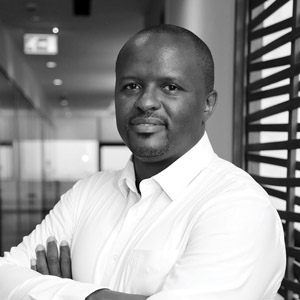 The distributed renewable energy sector has immense potential to transform lives and economies across Africa and set a model for emerging economies worldwide. However, a key challenge remains: how do we measure the impact of these innovations?
The distributed renewable energy sector has immense potential to transform lives and economies across Africa and set a model for emerging economies worldwide. However, a key challenge remains: how do we measure the impact of these innovations?
By Dennis Nderitu, Energy Systems Manager, GEAPP
Currently, there is a lack of standardised metrics, with evaluations done on a case-by-case basis specific to individual technologies. This absence of a unified framework limits the visibility and scalability of innovations. Without standard metrics, similar solutions may be developed independently by different organisations, leading to duplication of effort and wasted resources. This fragmentation hinders our ability to gauge whether we are genuinely moving towards our key goals.
Collaboration Leads to Innovation
Innovation often struggles to secure funding because of a lack of clear metrics demonstrating its long-term impact. As a result, projects may be abandoned, and new initiatives start from scratch instead of building on previous efforts. Investors need a standardised framework to assess potential returns and benefit from knowledge sharing. This framework would help secure consistent funding, enabling promising innovations to thrive.
Deploying resources like the World Bank’s $300 million facility for distributed renewable energy (DRE) and clean cooking initiatives can be accelerated through collaboration. The sector needs unified metrics to capture the true impact of innovation across environmental, social and economic dimensions. A shared understanding of desired outcomes will build stakeholder confidence and demonstrate progress towards common goals.
Openly sharing data and learnings can prevent duplication and accelerate progress. A platform documenting successful innovations and their impacts would foster collaboration and knowledge sharing, preventing wasted resources.
Innovation Needs Patience
Investors often prioritise quick returns, making it challenging for long-term projects to secure funding. Voluntary-carbon-style funding, which tolerates calculated risks for potentially high rewards, is needed to support early-stage innovations. Philanthropic funding from NGOs such as the Global Energy Alliance for People and Planet (GEAPP) can bridge the gap, smoothing the friction that limits innovation financing.
Universities and innovators often have unrealistic expectations about funding and commercialisation pathways, leading to a misalignment of expectations.
Standardised metrics align technologists and innovators with funders’ expectations, ensuring regular and consistent reporting. This alignment allows potential businesses to be incubated by specialists and later supported by accelerators for scale and commercialisation. Collaboration between funders, innovators, governments and NGOs is crucial to overcome challenges and accelerate progress.
With the 2030 goal of connecting 100 million Africans in eastern and southern regions to clean energy approaching, patience is running out. International investors have already contributed 20% of the $5 billion needed, increasing the pressure to deliver meaningful progress.
Hidden Costs of Innovation
A unified approach, standard metrics, and collaboration are essential for navigating the innovation landscape. Standards bodies must represent all stakeholders and consider the full costs of innovation to optimise and reduce costs across the value chain.
By addressing these issues, we can ensure that our innovation efforts are not only impactful but also contribute to the broader goals of society. We have evidence of the transformative capabilities of forward-leaning, renewables-friendly national policies in Senegal and Ghana, where an estimated 20,000 jobs will be created in the DRE sector by the end of the decade.
The DRE sector stands at a crossroads. Embracing standardised impact measurement is essential. By collaborating on this framework, we can unlock the true potential of innovation and create a more sustainable and equitable future for all.
Further Reading
www.ruralelec.org/publication/catalysing-green-rural-job-creation-with-dre-in-west-africa/









